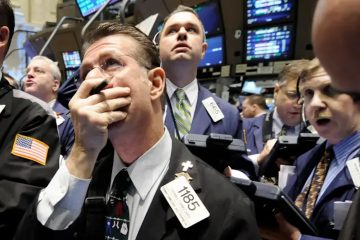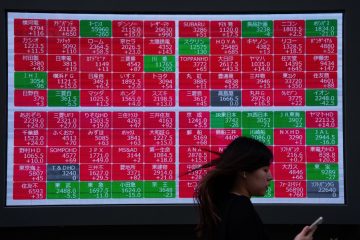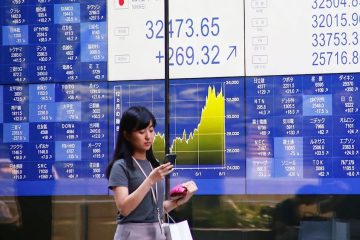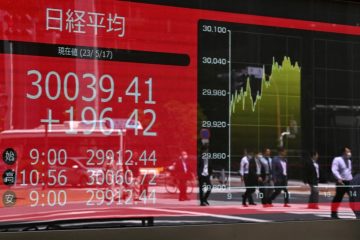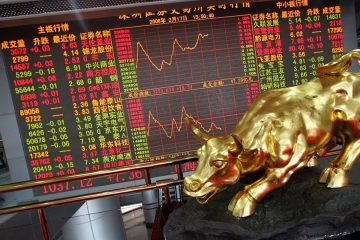Asian markets fall as Nikkei 225 falls 8% after Wall St disaster.
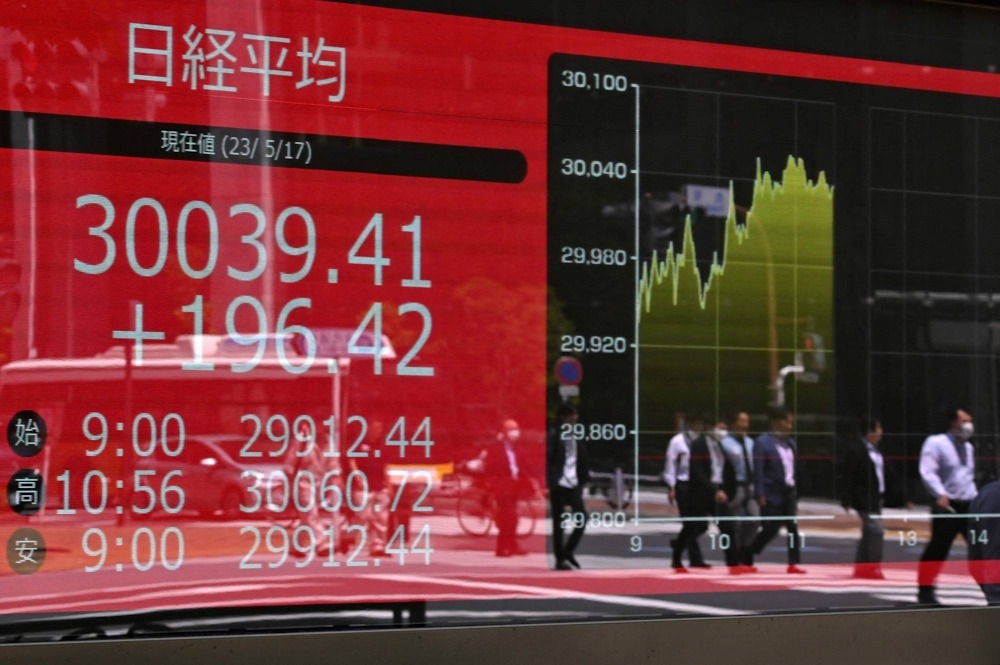
Asian markets experienced a significant downturn, with Japan’s Nikkei 225 plummeting by 8% following a dramatic decline on Wall Street. Asian markets experienced a significant downturn on Monday, following a sharp decline on Wall Street last Friday, attributed to US President Donald Trump’s proposed tariff increases and the subsequent response from Beijing. US futures indicated a continuation of downward momentum. The S&P 500 futures experienced a decline of 4.2 percent, while the Dow Jones Industrial Average futures fell by 3.5 percent. The Nasdaq futures experienced a decline of 5.3 percent.
In a significant downturn, Tokyo’s Nikkei 225 index experienced a decline of nearly 8 percent shortly after the market opened, while Australia’s S&P/ASX 200 faced a sharp drop of over 6 percent. South Korea’s Kospi experienced a decline of 4.4 percent.Oil prices experienced a notable decline, as the US benchmark crude fell by 4 percent, equating to a decrease of $2.50, bringing the price to $59.49 per barrel. Brent crude, the benchmark for international oil prices, declined by $2.25, settling at $63.33 per barrel. Oil prices experienced a notable decline, as the US benchmark crude fell by 4 percent, equating to a decrease of $2.50, bringing the price to $59.49 per barrel. Brent crude, recognized as the international benchmark, experienced a decline of $2.25, settling at $63.33 per barrel.
On Friday, Wall Street experienced a significant escalation in its most severe crisis since the onset of Covid. The S&P 500 experienced a significant decline of 6 percent, while the Dow Jones Industrial Average fell by 5.5 percent. The Nasdaq composite experienced a significant decline of 5.8 percent. The recent losses were triggered by China’s decision to align its tariffs with the significant increase announced by President Donald Trump last week, escalating tensions in a trade conflict that poses the risk of a recession impacting all parties involved. Despite a stronger-than-anticipated report on the U.S. job market, which typically serves as a key economic indicator each month, the downward trend persisted.
To date, the financial markets have seen minimal, if any, beneficiaries emerging from the ongoing trade war. On Friday, shares for all but 14 of the 500 companies listed in the S&P 500 index experienced a decline. Crude oil prices have plummeted, reaching their lowest point since 2021. Prices for essential commodities like copper experienced a decline amid concerns that the ongoing trade war may dampen global economic growth.
The reaction from China to the US tariffs has led to a swift increase in losses across global markets. The Commerce Ministry in Beijing announced its intention to counter the 34 percent tariffs imposed by the United States on Chinese imports by implementing a reciprocal 34 percent tariff on all U.S. products starting April 10, along with additional measures. The United States and China stand as the foremost economic powerhouses globally.
The pivotal inquiry moving forward is: Will the trade war trigger a global recession? Should this occur, it is likely that stock prices will require further reductions beyond their current levels. The S&P 500 has experienced a decline of 17.4 percent from its peak established in February. Trump appeared undeterred. Departing from Mar-a-Lago, his exclusive Florida club, he made his way to a nearby golf course following a social media post declaring that now is an opportune moment for wealth accumulation.
The Federal Reserve may mitigate the impact of tariffs on the economy by implementing interest rate cuts, a strategy that could incentivize borrowing and spending among businesses and consumers alike. However, the Federal Reserve may find its ability to act more constrained than desired. On Friday, Federal Reserve Chair Jerome Powell indicated that tariffs might elevate inflation expectations, while reduced interest rates could potentially exacerbate further price increases.
Powell emphasized the importance of maintaining stable long-term inflation expectations, asserting the necessity to ensure that a temporary rise in price levels does not evolve into a persistent inflation issue. The future implications hinge on the duration of Trump’s tariffs and the nature of retaliatory measures imposed by other nations. Segments of Wall Street remain optimistic that Trump may reduce tariffs following successful negotiations that yielded concessions from other nations. President Trump has acknowledged that Americans might experience some discomfort due to tariffs. However, he maintains that the long-term objectives, such as revitalizing domestic manufacturing jobs, justify these measures.
On Wall Street, shares of firms heavily engaged in the Chinese market experienced some of the most significant declines. DuPont experienced a significant decline of 12.7 percent following the announcement from China that its regulators are initiating an anti-trust investigation into the DuPont China group, a subsidiary of the chemical giant. This initiative is among various actions aimed at American corporations and serves as a response to the tariffs imposed by the United States. GE Healthcare reported that 12 percent of its revenue in the previous year was generated from the China region, which experienced a decline of 16 percent.
In the bond market, Treasury yields experienced a decline; however, they subsequently moderated their decreases in response to Powell’s measured remarks regarding inflation. The yield on the 10-year Treasury has decreased to 4.01 percent, down from 4.06 percent late Thursday and significantly lower than approximately 4.80 percent at the beginning of the year. The figure dipped below 3.90 percent earlier in the day.


